Dihydrofluorescein diacetate
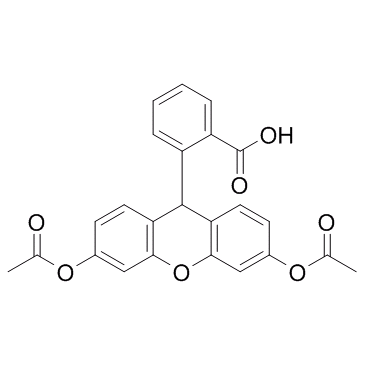
Dihydrofluorescein diacetate structure
|
Common Name | Dihydrofluorescein diacetate | ||
|---|---|---|---|---|
| CAS Number | 35340-49-9 | Molecular Weight | 418.39600 | |
| Density | 1.353g/cm3 | Boiling Point | 554.3ºC at 760 mmHg | |
| Molecular Formula | C24H18O7 | Melting Point | 213-215ºC(lit.) | |
| MSDS | Chinese USA | Flash Point | N/A | |
Use of Dihydrofluorescein diacetateDihydrofluorescein diacetate is a fluorimetric probe mainly used for oxidative stress measurements, in both cell-free systems and cellular models. |
| Name | 2-(3,6-diacetyloxy-9H-xanthen-9-yl)benzoic acid |
|---|---|
| Synonym | More Synonyms |
| Description | Dihydrofluorescein diacetate is a fluorimetric probe mainly used for oxidative stress measurements, in both cell-free systems and cellular models. |
|---|---|
| Related Catalog | |
| In Vitro | Dihydrofluorescein diacetate may be a superior fluorescent probe for many cell-based studies. It is a better fluorescent probe for detecting intracellular oxidants because it is more reactive toward specific oxidizing species. Dihydrofluorescein diacetate demonstrates fluorescence of linear structures, consistent with mitochondria, in reoxygenated endothelium[1]. Dihydrofluorescein diacetate is able to detect the presence of ROS in mitochondria. Dihydrofluorescein diacetate fluorescence was sharp and delineated thin filaments which corresponded in all details to TMRM-stained mitochondria. It enters mitochondria and reacts with ROS released in the matrix[2]. Dihydrofluorescein diacetate could be an useful and quantitative method for measuring the oxidative potential of nanoparticle-treated cells[3]. |
| Cell Assay | Dihydrofluorescein diacetate is used at a final concentration of 5 μM for the cell-free studies. The excitation wavelength is 488 nm and the emission wavelength is 521 nm, the same as the excitation and emission wavelengths of the confocal microscope. All fluorescence measurements are performed on room temperature solutions. Human umbilical vein endothelium at first passage are cultured to confluence on 48 well plates. Cells are ished with PBS, then PBS with glucose, pH 7.4, is added to the cells. Dihydrofluorescein diacetate is added at a final concentration of 20 mM. Wells without cells are also loaded with fluorescent probes to serve as controls. Fluorescence measurements are made on a fluorescent platereader every 10 min at Exλ 488 nm and Emλ 510 (bandpass 5 nm) and 538 nm (bandpass 10 nm). The Emλ 510 nm and Emλ 538 nm values are added together[1]. |
| References |
| Density | 1.353g/cm3 |
|---|---|
| Boiling Point | 554.3ºC at 760 mmHg |
| Melting Point | 213-215ºC(lit.) |
| Molecular Formula | C24H18O7 |
| Molecular Weight | 418.39600 |
| Exact Mass | 418.10500 |
| PSA | 99.13000 |
| LogP | 4.52130 |
| Index of Refraction | 1.626 |
| Storage condition | 2-8℃ |
| Personal Protective Equipment | Eyeshields;Gloves;type N95 (US);type P1 (EN143) respirator filter |
|---|---|
| Safety Phrases | S22-S24/25 |
| RIDADR | NONH for all modes of transport |
| WGK Germany | 3 |
| HS Code | 2932999099 |
|
~94% 
Dihydrofluoresc... CAS#:35340-49-9 |
| Literature: Sharma, Padam N.; Brossi, Arnold Helvetica Chimica Acta, 1984 , vol. <1> 67, # 35 p. 301 - 304 |
|
~% 
Dihydrofluoresc... CAS#:35340-49-9 |
| Literature: Heterocycles, , vol. 31, # 11 p. 1975 - 1982 |
|
~% 
Dihydrofluoresc... CAS#:35340-49-9 |
| Literature: Heterocycles, , vol. 31, # 11 p. 1975 - 1982 |
|
~% 
Dihydrofluoresc... CAS#:35340-49-9 |
| Literature: Monatshefte fuer Chemie, , vol. 13, p. 417 |
| HS Code | 2932999099 |
|---|---|
| Summary | 2932999099. other heterocyclic compounds with oxygen hetero-atom(s) only. VAT:17.0%. Tax rebate rate:13.0%. . MFN tariff:6.5%. General tariff:20.0% |
|
M2 Polarization of Monocytes-Macrophages Is a Hallmark of Indian Post Kala-Azar Dermal Leishmaniasis.
PLoS Negl. Trop. Dis. 9 , e0004145, (2015) The high level of functional diversity and plasticity in monocytes/macrophages has been defined within in vitro systems as M1 (classically activated), M2 (alternatively activated) and deactivated macr... |
|
|
Extensive crosslinking of CD22 by epratuzumab triggers BCR signaling and caspase-dependent apoptosis in human lymphoma cells.
MAbs 7(1) , 199-211, (2015) Epratuzumab has demonstrated therapeutic activity in patients with non-Hodgkin lymphoma, acute lymphoblastic leukemia, systemic lupus erythematosus, and Sjögren's syndrome, but its mechanism of affect... |
|
|
Po2 cycling protects diaphragm function during reoxygenation via ROS, Akt, ERK, and mitochondrial channels.
Am. J. Physiol. Cell Physiol. 309 , C759-66, (2015) Po2 cycling, often referred to as intermittent hypoxia, involves exposing tissues to brief cycles of low oxygen environments immediately followed by hyperoxic conditions. After experiencing long-term ... |
| MFCD00005056 |
| Dihydrofluorescein diacetate |
| 2-[3,6-Diacetoxy-9H-xanth-9-yl]benzoic acid |
| 2-[3,6-Bis(acetyloxy)-9H-xanthen-9-yl]benzoic acid |
| D1845 |
| 2-(3,6-diacetoxy-xanthen-9-yl)-benzoic acid |
| 2-(3,6-Diacetoxy-xanthen-9-yl)-benzoesaeure |
| Diacetyldihydrofluorescein |

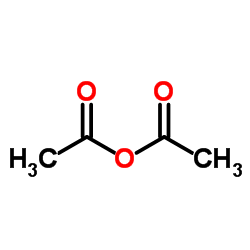
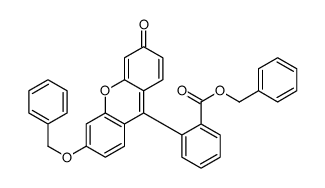
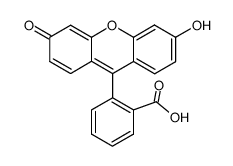
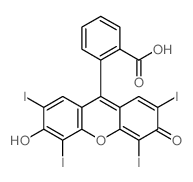 CAS#:548-25-4
CAS#:548-25-4